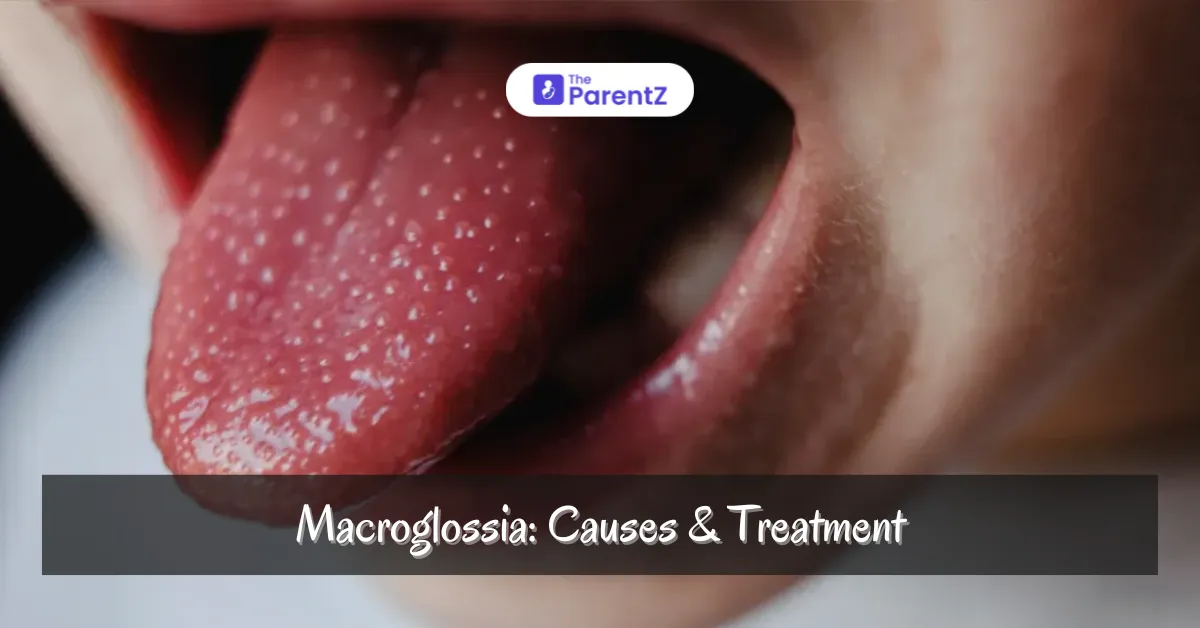Macroglossia, a condition characterized by an abnormally enlarged tongue, can affect various aspects of daily life, including speech, eating, and even breathing. While it is relatively rare, macroglossia can be a symptom of several underlying conditions or genetic disorders. The severity of the condition varies, and treatment often depends on the root cause and its impact on the individual’s quality of life.
What Is Macroglossia?
Macroglossia is the medical term used to describe an unusually large tongue that may extend beyond the teeth or lips, causing functional issues with speech, swallowing, or breathing. The condition can be congenital (present at birth) or acquired later in life due to various factors.
In some cases, the enlarged tongue may only slightly interfere with daily activities, but in more severe instances, it can cause significant complications, including difficulty eating, speaking, and even sleeping. Macroglossia can also affect facial development and lead to other dental problems, particularly in children.
Symptoms of Macroglossia
The symptoms of macroglossia can range from mild to severe, depending on the size of the tongue and the underlying cause. Some of the most common symptoms include:
1.Visible Enlargement of the Tongue
The most obvious sign of macroglossia is a tongue that appears too large for the mouth, often protruding beyond the teeth or lips. This can make it difficult to close the mouth fully, leading to other issues like drooling.
2.Difficulty with Speech
A larger-than-normal tongue can interfere with articulation, making it harder to pronounce words correctly. Individuals with macroglossia may have slurred speech or trouble with certain sounds.
3.Breathing and Swallowing Problems
Depending on the size of the tongue, breathing or swallowing may become more challenging. In severe cases, an enlarged tongue can block the airway, leading to sleep apnea or other respiratory issues.
4.Dental Problems
Macroglossia can cause misalignment of the teeth or malocclusion (an improper bite) due to the constant pressure the tongue exerts on the teeth. This can lead to orthodontic issues or even speech impairments.
5.Difficulty Eating
A large tongue may interfere with chewing and swallowing food. Some individuals may have trouble moving food around in the mouth, leading to a slower eating process or even choking in more severe cases.
6.Facial Abnormalities
In children, chronic macroglossia can contribute to abnormal facial development, especially if it pushes against the teeth or affects jaw growth. This can result in an open bite or other dental deformities that may require orthodontic intervention.
Causes of Macroglossia
Macroglossia can be caused by a variety of factors, ranging from genetic conditions to acquired diseases. Here are some of the most common causes:
1. Congenital Conditions
Macroglossia is often associated with genetic or developmental disorders. Some of the congenital causes include:
•Down Syndrome: Individuals with Down syndrome often have an enlarged tongue due to muscular or structural abnormalities.
•Beckwith-Wiedemann Syndrome: This overgrowth disorder causes macroglossia along with other physical abnormalities such as large organs and increased risk of tumors.
•Congenital Hypothyroidism: This condition, where the thyroid gland doesn’t produce enough hormones, can lead to an enlarged tongue as part of overall growth irregularities.
2. Acquired Conditions
Certain medical conditions or lifestyle factors that develop later in life can also lead to macroglossia:
•Acromegaly: This hormonal disorder, usually caused by a benign tumor in the pituitary gland, results in the overproduction of growth hormone, leading to enlargement of bones and tissues, including the tongue.
•Amyloidosis: This condition is characterized by the buildup of amyloid proteins in organs and tissues. When these proteins accumulate in the tongue, they can cause it to swell.
•Hypothyroidism: If untreated, hypothyroidism can lead to various physical symptoms, including an enlarged tongue.
•Tumors or Growths: Benign or malignant tumors in the mouth or jaw area can sometimes cause the tongue to enlarge.
3. Trauma or Infections
Infections, trauma, or allergic reactions that cause significant swelling can also result in temporary or permanent macroglossia.
Diagnosis of Macroglossia
Diagnosing macroglossia involves a physical examination and may include additional diagnostic tests to determine the underlying cause. Common steps in the diagnostic process include:
1. Clinical Examination
A healthcare professional will begin by assessing the size of the tongue in relation to the rest of the mouth and looking for other visible symptoms like dental misalignment or speech issues.
2. Imaging Tests
In cases where a tumor or structural abnormality is suspected, imaging tests such as X-rays, MRIs, or CT scans may be ordered to get a clearer view of the tongue and surrounding tissues.
3. Blood Tests
Blood tests can help identify any underlying hormonal or genetic conditions that may be contributing to macroglossia, such as hypothyroidism or acromegaly.
4. Biopsy
If a tumor or amyloidosis is suspected, a biopsy may be performed to examine tissue from the tongue and rule out cancerous growths.
Treatment Options for Macroglossia
The treatment for macroglossia depends largely on the underlying cause and the severity of the symptoms. In mild cases, no treatment may be necessary, while more severe cases may require surgical intervention or other therapies.
1. Treating the Underlying Condition
For macroglossia caused by underlying medical conditions such as hypothyroidism or acromegaly, treating the root cause can often reduce the size of the tongue. For example, hormone replacement therapy for hypothyroidism or surgery to remove a pituitary tumor in acromegaly can help manage the condition.
2. Speech Therapy
For individuals who experience speech difficulties due to macroglossia, working with a speech therapist can help improve articulation and communication skills. Speech therapy is particularly beneficial for children with developmental disorders.
3. Orthodontic Treatment
In cases where macroglossia causes dental misalignment, orthodontic treatment such as braces or other corrective measures may be recommended to improve the bite and prevent further complications.
4. Surgical Intervention
For more severe cases of macroglossia, especially when the tongue obstructs breathing, eating, or speaking, surgical reduction (glossectomy) may be necessary. This procedure involves removing a portion of the tongue to reduce its size and alleviate symptoms.
When to See a Doctor
If you or your child experience symptoms of macroglossia, such as difficulty breathing, eating, or speaking, it is important to consult a healthcare professional. They can provide an accurate diagnosis and determine the appropriate treatment options based on the severity of the condition.
Conclusion
Macroglossia, though rare, can have a significant impact on a person’s quality of life, particularly when it affects speech, breathing, or dental health. While the condition itself may not always require treatment, managing the underlying causes and addressing symptoms through therapy or surgery can greatly improve functionality and comfort.





Be the first one to comment on this story.